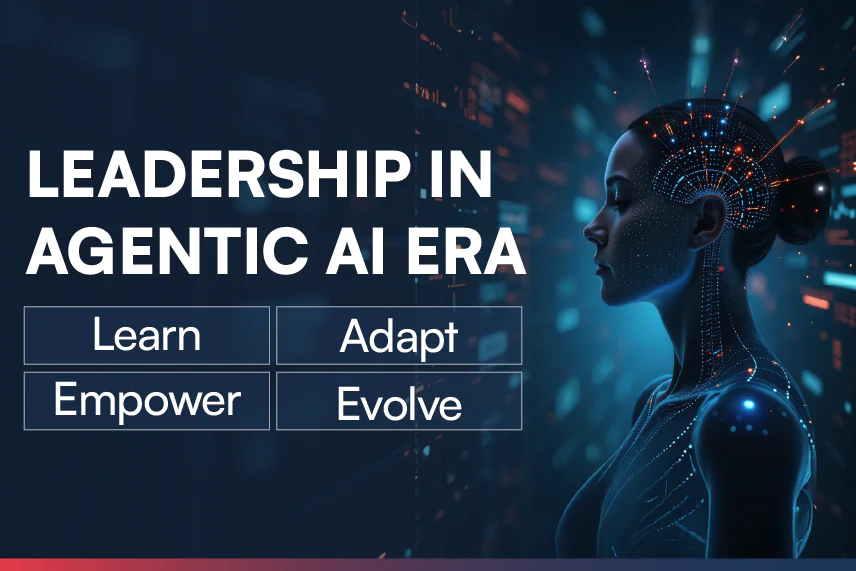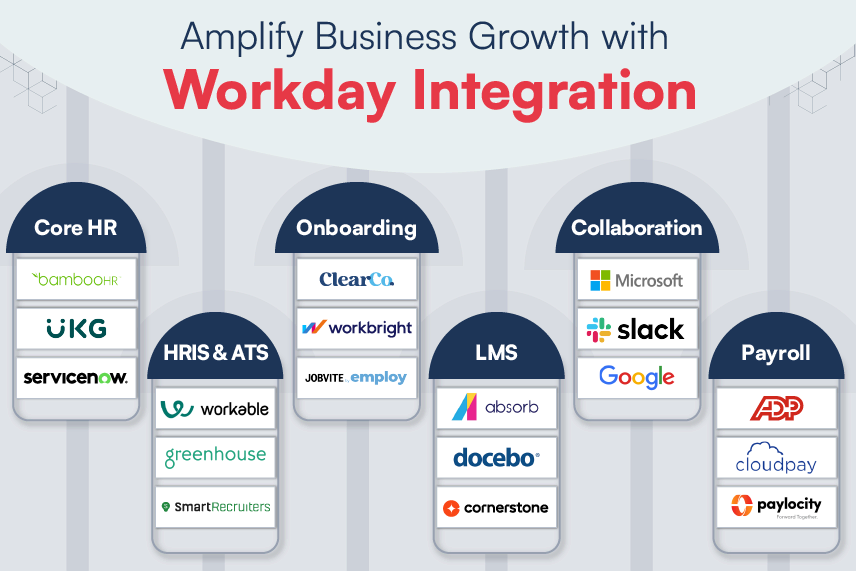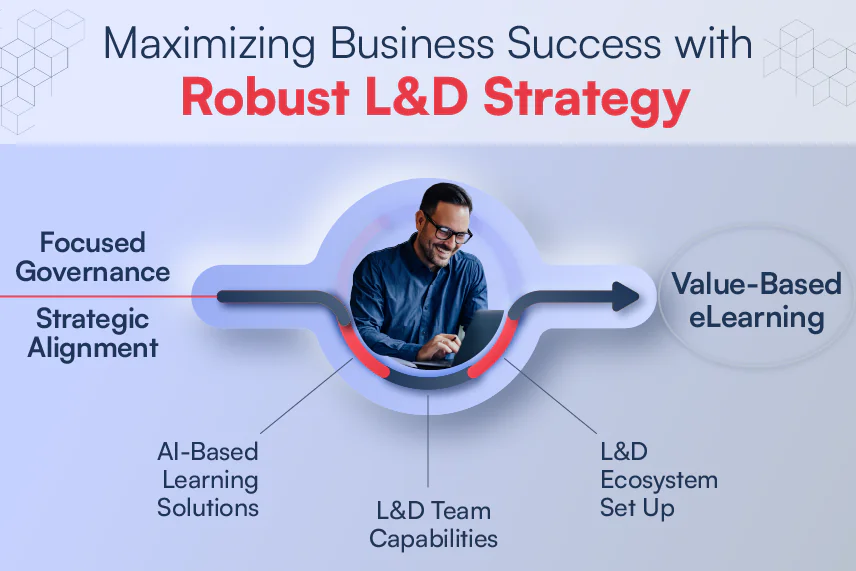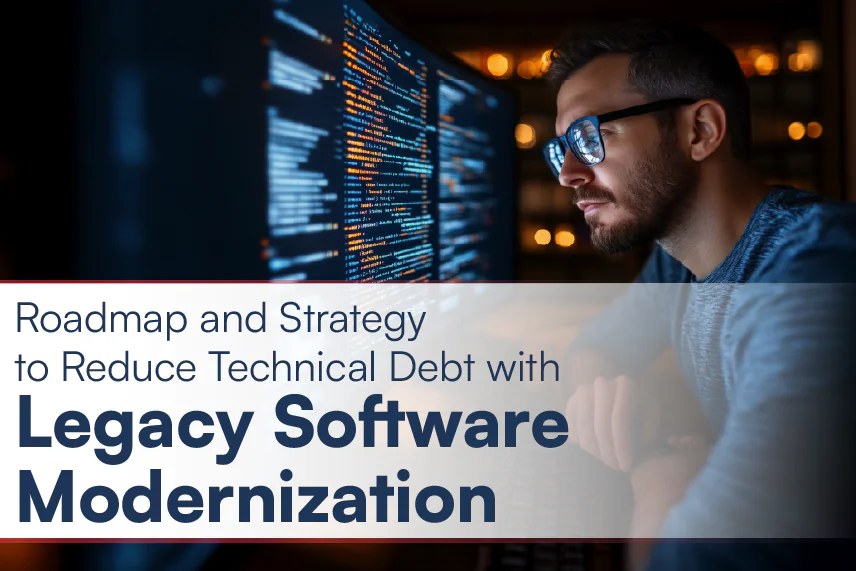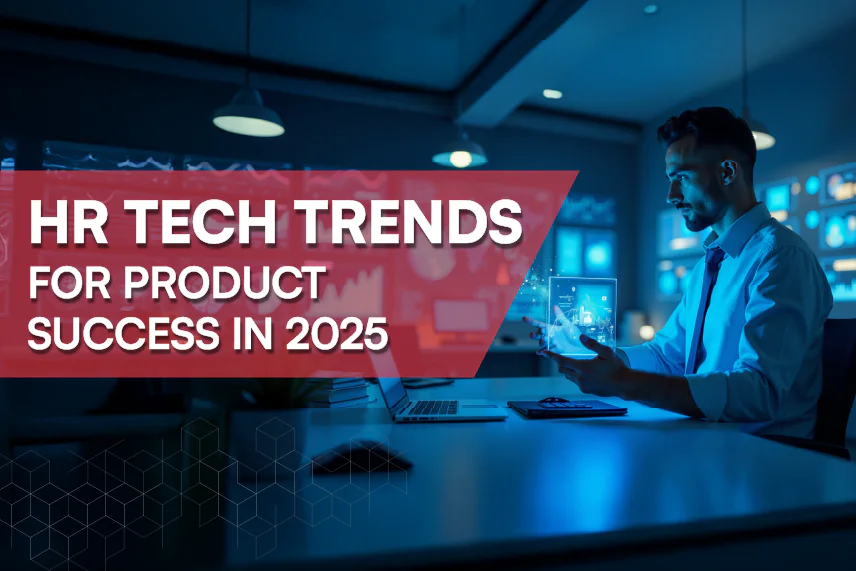
As we stride into the new year, the evolving landscape of EdTech trends in 2024 presents a dynamic pathway toward fostering sustainable education practices. With innovative technological advancements on the horizon, the educational sphere is poised for a transformative journey marked by sustainability and digital empowerment.
A Harvard Business Review states that skill-based hiring is on the rise. According to TestGorilla’s The State of Skills-Based Hiring 2022 report, 76% of employers are deploying skills-based hiring to look for new talent, with almost 55% using role-specific skills tests.
Fueled by technology and innovation, the EdTech arena looks promising in the new year as we can expect EdTech Trends 2024 to bring about a paradigm shift, with a heightened focus on personalized, hyper-personalized learning and more. Join us as we delve into the captivating realm of EdTech Trends 2024, where innovation and technology converge to redefine the educational landscape.
Why Keep an Eye on Edtech Trends 2024?
With rapid developments and innovation in the education sector in the past few years, it is critical to closely track EdTech trends 2024, given the contemporary landscape where individuals engage in extended careers and embark on diverse professional pathways.
As the demand for continuous skill development intensifies to facilitate seamless career transitions, it has prompted a notable transformation within the traditional linear education structure.
This underscores the necessity to adapt swiftly and incorporate these emerging EdTech trends to provide relevant and adaptable learning solutions that cater to the evolving needs of students and professionals.
Implementing EdTech trends 2024 in a mindful and strategic manner can pave the way for a more personalized, engaging, and equitable education system, empowering learners to reach their full potential.
Are EdTech Trends 2023 Setting the Stage for EdTech Trends 2024?
Let’s find out!
Before we dive into exploring EdTech trends in 2024, let’s reflect on the key trends that emerged in 2023 and why they will likely continue to gain attention in the coming year.
1. Personalized Learning
The emphasis on personalized learning gained significant traction in 2023 and is poised to remain a cornerstone of EdTech Trends 2024. As technology continues to evolve, EdTech platforms will use advanced data analytics and AI to delve deeper into individual learning styles and preferences.
This trend ensures that students can navigate their educational journey at their own pace, with tailored learning pathways addressing specific skill gaps. The commitment to individualized education aligns with the broader shift towards student-centric learning experiences, a trend that will undoubtedly persist in the coming year.
2. Microlearning and Bite-Sized Content
The demand for concise, easily digestible content encapsulated in microlearning modules is set to grow. In response to the modern learner’s busy lifestyle and shorter attention spans, EdTech platforms will continue to refine and expand their offerings of bite-sized content.
Short videos, interactive modules, and infographics will dominate, catering to the need for quick, focused bursts of learning that can be seamlessly integrated into daily routines. The accessibility and efficiency of microlearning align with the fast-paced nature of contemporary education and will likely see increased integration in the coming year.
3. Cross-Platform Integration
The call for cross-platform integration in EdTech, witnessed in 2023, will persist as students increasingly seek flexibility in accessing learning resources. EdTech providers will continue to invest in developing seamless, interoperable solutions that transcend device and platform constraints.
This ensures that learners can effortlessly transition between various devices, promoting a continuous and uninterrupted learning experience. The focus on accommodating diverse preferences and fostering on-the-go learning will be a driving force for EdTech trends 2024.
4. Collaborative Learning Environments

Collaborative learning, recognized as pivotal for developing essential skills, will see further evolution and will continue being an important element in Edtech Trends 2024 as EdTech platforms will continue to enhance tools that facilitate collaboration among students, even when geographically dispersed.
Virtual classrooms, project collaboration features, and real-time communication tools will become more sophisticated, fostering a sense of community, and enabling students to collectively tackle assignments.
The trend toward collaborative learning aligns with the growing importance of teamwork and communication skills, ensuring its prevalence in EdTech advancements in the coming year.
5. Emotional Intelligence and Well-Being
The integration of Emotional Intelligence (EI) elements in EdTech programs is expected to deepen in the future. As EI gains recognition for its role in academic and professional success, EdTech providers will continue to prioritize the development of tools and content that nurture emotional intelligence.
Incorporating mindfulness exercises, stress management resources, and emotional well-being modules will become more prevalent. EdTech’s role in supporting students’ holistic development and mental health reflects a broader societal awareness and will continue to be a focal point for Edtech Trends 2024.
Navigating the Future of Education: Unveiling EdTech Trends 2024
Tracking the right EdTech trends 2024 will help you bridge the gap between education and employment and build a robust future of education framework. Let’s take a look at the upcoming EdTech trends for the new year to give you a better idea.
1. ChatGPT and AI-Assisted Learning
ChatGPT and AI-assisted learning are emerging as powerful tools for personalized and engaging learning experiences. Generative AI can be effectively deployed to create virtual tutors that can provide personalized feedback and instruction to learners. AI-assisted learning platforms can use data and analytics to identify individual learning needs and provide learners with tailored content and activities.
Recent advancements in GenAI and large language models popularly known as LLMs have spearheaded a transformation in education. Conversational LLM platforms such as ChatGPT, Bard, and Dalle offer students access to perform tasks like summarization, text generation, and more, along with real-time responses to questions on expert topics.
Harbinger’s iContent Framework adds another layer of innovation, enabling seamless integration for translation, knowledge creation, assessment generation, and content creation. This synergy creates a powerful ecosystem where AI-driven platforms and frameworks enhance the efficiency and effectiveness of learning processes, offering students unparalleled opportunities for knowledge acquisition and skill development.
2. Micro Degrees vs Monolithic Structure of Education
The EdTech landscape in 2024 is witnessing a transformative trend, challenging the traditional monolithic structure of education through the emergence of Micro Degrees. Departing from conventional and lengthy academic programs, Micro Degrees offer bite-sized, specialized courses tailored to specific skills or knowledge areas. This trend responds to the evolving needs of learners seeking targeted, on-demand education that aligns with rapidly changing industry demands.
Micro Degrees present a modular approach, allowing learners to acquire competencies incrementally, promoting continuous skill development. EdTech platforms curate these modular courses, offering learners the flexibility to build a personalized learning path and stack credentials over time. This trend not only caters to the demands of lifelong learners but also accommodates professionals aiming for continuous upskilling in dynamic industries.
In contrast to the monolithic structure, which often requires a significant time commitment, Micro Degrees promote agility, accessibility, and relevance in education. Learners can acquire specific skills promptly, making them more adaptable in today’s fast-paced job market. This trend signifies a shift towards a more modular, learner-centric approach, emphasizing the value of targeted, competency-based education.
3. Virtual Tutors and Chatbots

Virtual tutors and chatbots are emerging as powerful tools in the education landscape, offering personalized and engaging learning experiences that can be scaled to meet the needs of all learners.
Virtual tutors are computer-based programs that can simulate the experience of having a human tutor.
They can provide learners with personalized feedback and instruction and can be used to support a variety of learning activities, including:
- Generation of customized learning plans
- Real-Time Feedback
- Easy Collaboration
- Creation of Adaptive Assessment
Chatbots, on the other hand, are computer programs that can simulate conversations with human users. They can be used to provide learners with information, answer their questions, and help them to complete tasks. As a critical EdTech trend 2024, virtual tutors and chatbots are projected to continue to grow in popularity as educational institutions and universities recognize their potential.
4. UI/UX Modernization for Education Platforms
Is UI/UX modernization for education platforms worth the investment?
UI/UX modernization is redesigning and improving educational software and websites’ user interface (UI) and user experience (UX). This can involve changing the platform’s layout, design, functionality, and overall usability.
There are several reasons why UI/UX modernization is essential for education platforms. First, it can help to make the platform more user-friendly and engaging for students and teachers. Second, it can improve the platform’s efficiency, make it easier for users to complete tasks, and build a more positive and productive learning environment.
By modernizing their platforms, education providers can create a more digital-first learning experience tailored to their learners’ needs. This is an essential Education Technology Trend where learners increasingly use digital devices and technologies to learn.
Harbinger modernized the UI/UX of a student admission management platform of a leading EdTech business. We significantly improved the payment experience.
5. Integration of Social Networks into Learning Models
The emerging trend of “Integration of Social Networks into Learning Models” in EdTech signals a dynamic shift toward collaborative and interactive learning. Recognizing the ubiquity of social networks, educators are integrating these platforms into educational models to enhance engagement and foster community-driven learning experiences. By leveraging the familiar dynamics of social media, students can participate in discussions, share resources, and collaborate on projects, transcending traditional classroom boundaries.
This trend taps into the power of peer-to-peer learning, creating a more interconnected educational ecosystem. It not only promotes knowledge sharing but also cultivates a sense of community and belonging among learners. As EdTech continues to evolve, integrating social networks into learning models proves to be a strategic move, aligning education with the collaborative nature of the digital age.
6. Blockchain Technology for Data Security

Blockchain technology, which is best known for its use in cryptocurrencies, has the potential to revolutionize data security in the education sector. By providing a secure and immutable way to store and share data, blockchain can help educational institutions protect student data from unauthorized access and tampering.
This is particularly important in the digital age, where student data is increasingly being shared between institutions for various purposes, such as semester exchanges, assessments, and research. Blockchain can ensure that this data is securely shared and that students have control over their data.
7. Subscription-Based Skilling Platforms
Subscription-based skilling platforms are expected to be one of the most significant EdTech Trends in 2024. These platforms offer learners access to a wide range of courses and learning resources on various topics, from technical skills to soft skills. Learners can subscribe to these platforms monthly or annually, and they can access the courses at a preferred pace and time.
There are several reasons why subscription-based skilling platforms are becoming so popular. First, they are very flexible and convenient. Next, they are very affordable and can be one of your best bets to deal with the rapid developments and changing dynamics of the way people work and learn.
This model not only fosters a continuous learning mindset but also allows users to explore and adapt to emerging trends in their respective fields. As Subscription-Based Skilling Platforms continue to gain traction, they contribute to a paradigm shift in how individuals approach skill development, offering a convenient and cost-effective avenue for lifelong learning.
Learn all about subscription-based skilling platforms, including their benefits and the 4 buyer’s journey stages in a subscription-based model.
8. Rigorous Product Development
This trend signifies a departure from the rapid release cycles that once defined EdTech. Now, there is a pronounced focus on comprehensive product planning, robust testing, and iterative improvements based on user feedback. The aim is not just to introduce new features but to ensure that each element of an EdTech product serves a purpose and contributes meaningfully to the learning experience.
This commitment to rigorous product development extends to all facets of EdTech solutions, from learning management systems to interactive content platforms. Stakeholders are increasingly valuing products that undergo thorough testing for functionality, accessibility, and user experience. This shift is driven by the recognition that quality, not just quantity, is paramount in creating impactful educational technology.
9. User Experience Research
User Experience (UX) research is emerging as a transformative trend in EdTech, acknowledging the pivotal role of seamless interactions in learning environments. EdTech companies are increasingly prioritizing UX research, delving into user behaviors, preferences, and pain points. This analytical approach equips educators with insights to design more intuitive platforms.
Moreover, this trend goes beyond enhancing user satisfaction; it actively contributes to fostering more effective learning outcomes. With education technology becoming omnipresent, centering the learner in design ensures that digital tools align with diverse learning styles and needs. Investing in UX research becomes a strategic move to craft adaptive, user-friendly interfaces, empowering both educators and students. This shift marks a departure toward more personalized and engaging educational experiences.
For instance, UX research can be leveraged to design adaptive EdTech tools that assist teachers in anticipating student needs, allowing them to revisit concepts from previous classes to accelerate student progress. This personalized approach adds a layer of flexibility, catering to individual learning paces and preferences.
Below are a few tools that can be used for UXR:
- SurveyMonkey
- UserTesting.com
- Google Analytics
Parting Thoughts
As the EdTech market undergoes rapid expansion, heightened competition becomes inevitable. To navigate this competitive landscape successfully, education technology companies and institutions must strategically invest in understanding learners, market dynamics, and other critical aspects.
The EdTech trends anticipated in 2024 encompass a diverse range of technologies and strategies, emphasizing AI-assisted learning, virtual tutors, chatbots, UI/UX modernization, blockchain for data security, subscription-based skilling platforms and more. These trends collectively aim to establish a more sustainable and inclusive education system, catering to the diverse needs of learners while assisting educators more efficiently.
Embracing these trends empowers education providers to deliver personalized, engaging, and effective learning experiences, equipping students with the skills essential for success in the ever-evolving 21st-century workplace.
If you are keen on elevating your EdTech solutions, talk to our EdTech experts to pave the way for innovation and impactful advancements. Let’s connect at contact@harbingergroup.com.


